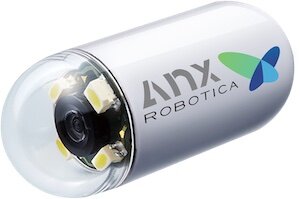

Medications that can damage the kidneys are known as “nephrotoxic medications.” These drugs can cause direct toxicity to the kidneys and have been implicated in up to 25% of acute kidney injuries. For people with even mild renal failure, you might want to think twice (or talk to your doctor) before you take these medications.
1) NSAIDS
NSAIDS, or nonsteroidal anti-inflammatory drugs, lead the list for drugs that induce kidney damage because of their widespread use. NSAIDS are used to treat a host of conditions such as fever, rheumatoid arthritis, menstrual pain and inflammation. Use of NSAIDS like ibuprofen, naproxen, Motrin, Aleve and Advil can reduce the amount of blood flow to the kidneys, resulting in a higher risk for kidney damage or failure.
People with heart failure, liver disease, or previous kidney problems are at even higher risk when taking NSAIDS. To reduce the amount of risk associated with NSAID use, try to use these medications at the lowest effective dose for the shortest period of time.
2) Vancomycin
Vancomycin is an antibiotic used to treat severe methicillin-resistant Staphylococcus aureus (MRSA) infections. Vancomycin has been known to cause kidney damage and acute interstitial nephritis, or swelling in the kidney. When taking vancomycin, your kidneys should be closely monitored to help avoid injury.
3) Diuretics
Diuretics, sometimes called water pills, help your body release excess salt and water. These medications treat conditions like high blood pressure, glaucoma and edema. There are three main types of diuretics: thiazide diuretics, loop diuretics and potassium-sparing diuretics. Many diuretics affect how the kidneys regulate water in the body, which can lead to worsening kidney function and abnormal electrolyte levels. Talk to your doctor about what medications might be best for your kidney.
4) Iodinated radiocontrast
Although this sounds like a complicated term, iodinated radiocontrast refers to any contrast dyes used in diagnostic testing, such as a CT scan. Contrast-induced kidney damage is a well-known complication of iodinated radiocontrast agents. It is one of the most common causes of kidney injury among hospitalized patients, occurring within 24 to 48 hours after receiving an IV contrast injection.
5) ACE inhibitors
ACE inhibitors can be good and bad for your kidneys. These are medications that tend to end in “-il,” like lisinopril, enalapril and ramipril. ACE inhibitors are usually used for high blood pressure, and heart failure.
In certain cases, ACE inhibitors can result in a decline in kidney function when first started and should be especially avoided in dehydrated patients. If you have kidney impairment, start on a low dose of ACE inhibitors, and ask your doctor about routine blood tests for creatinine. Interestingly enough, ACE inhibitors have been thought to be “kidney protective” for most diabetics, and do not cause worsening kidney function.
6) Jardiance
Jardiance (empagliflozin) is a diabetes medication which has been reported to cause kidney failure. Importantly, Jardiance has diuretic effects and interacts with other nephrotoxic drugs (drugs on this list), raising the risk for toxic kidney effects. Rare, but it can happen.
7) Aminoglycoside antibiotics
Aminoglycoside antibiotics are well known for causing kidney injury—even at low doses. People with chronic kidney disease, dehydration or those who have been taking these antibiotics for a long time are at particularly high risk. The most toxic aminoglycoside is neomycin, followed by gentamicin, tobramycin and amikacin. Streptomycin is the least toxic. Although these medications are typically intravenous and used in hospitals, they are important to keep at the back of your mind!
8) HIV medications and antiretroviral drugs
Certain antiretroviral medications are associated with chronic kidney damage and can increase your risk for kidney disease. Viread (tenofovir) and Reyataz (atazanavir) have both been shown to cause acute tubular injury, a disease of the kidney tubules.
9) Zoledronic acid
Zoledronic acid (Zometa, Reclast) is typically used to treat osteoporosis but is known cause tubular cell toxicity and kidney failure. Given as an IV infusion for cancer bone metastases, Zometa carries a well-established risk of deterioration of kidney function.
10) Foscarnet
Foscarnet, administered by IV, is a rarely used drug that treats viral infections in immunocompromised patients. It is a highly nephrotoxic drug and causes injury to the tubules in the kidneys.
There you have it!
Dr O.
Source: Read Full Article



